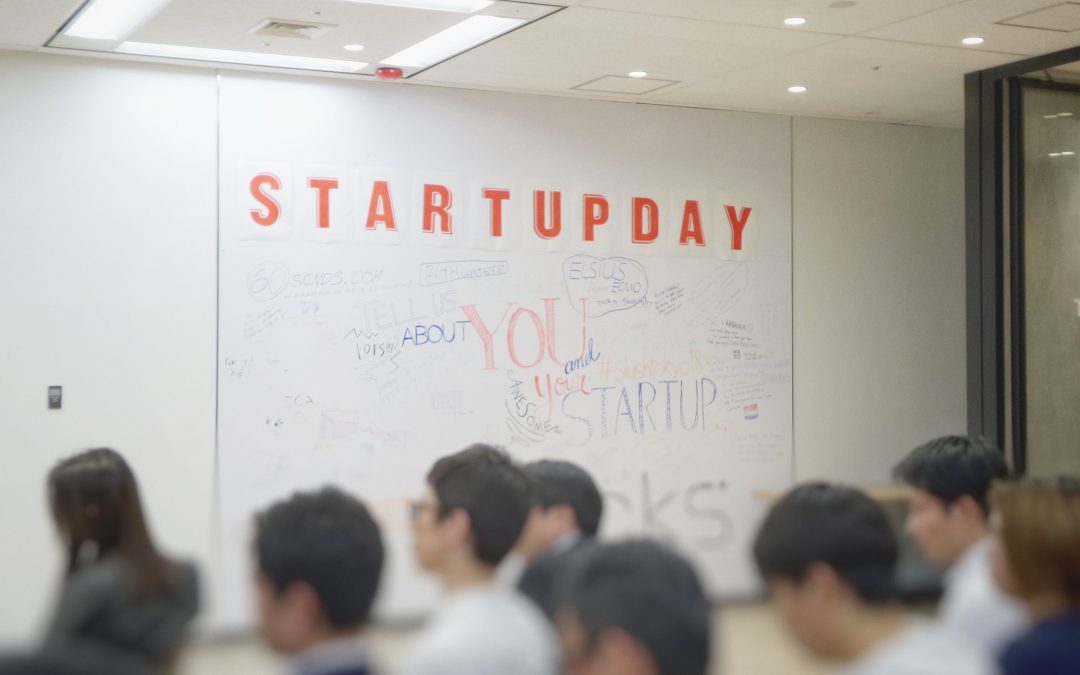
Mar 15, 2015 | Research, Strategy
I am a young professional in advertising and I spent the first 2 years and a half of my career at a desk, trying to find communication solutions for business needs someone else pinpointed in a brief or in a list of delivreables. Most of our clients were big top 500 companies, more precisely their brand managers, who sometimes have vanity KPIs I found difficult to correlate with the business needs per say. This weekend I left my desk and met some business owners whose sole KPI seems to be the survival and growth of their business.
I went to a local event here in Bucharest held by Inside Coach Academy, an organization trying to connect small business owners or creative professionals with coaches who can help them gain the skills needed to make their business thrive. The event was practically a sales pitch created to promote the courses these coaches deliver. In theory, I had no business being there.
However, it proved insightful, not necessarily because of the presentations, but because of the dynamic between the coaches and the audience. The presentation I was most keen on listening to was scheduled last and it was dedicated to digital marketing and social media, with ad men from iLeo (Publicis local digital agency) as coaches. The most vocal among the audience were the small business owners, they raised questions and demanded no bullshit answers.
I recognized the ad men pitch, the structure and step by step approach: ok, we need the overall strategy for our digital brand, then the distribution channels of our message and then we evaluate the performance of all our efforts. Of course, with some variation and intermediary steps. All common sense in the ad world, nice and clearly structured. And then the questions poured in: what about site design? and digital analytics? tracking conversion rate, improving site UX and UI? what is the ROI of social media? Would the course also focus on local case studies or just big brands with big bucks to invest in digital marketing? Who should take this course — the business owner or the marketing and communication specialists?
It was amazing, I am telling you. I was smiling all through the Q&A session — all these questions were so down to earth, specific and well informed on how digital marketing can help support a business, not just a brand manager’s status quo. These people are focused on how to make things work and bring in more business. Of course, they do need structure and guidance to understand the bigger picture of how digital marketing can help support their business (proper research and strategy are, I think, a big pain points for beginner entrepreneurs), but their drive for relevant results and thirst for understanding how they can use digital marketing to help their business grow are important.
Should entrepreneurs take responsibility for digital marketing? It depends on the industry profile and size. If you own an online bookstore, you’d better understand online publishing, for example. My honest advice for all of them is to make sure they have an overall understanding of how digital marketing can or cannot help their business before turning in all the effort to a dedicated specialist. They will, first of all, know who to recruit and how to evaluate their work. Just to make sure they do not end up working with brand managers who thrive on vanity KPIs, not business results.

Feb 8, 2015 | Research
I finished reading Jay Oatway’s signature book: “Mastering Story, community and influence: how to use social media to become a socialeader” this week. It focuses on three topics: story, community and influence and is addressed to business leaders trying to connect in order to exploit the power of social media. The message that welcomes them is most appropiate:
We want to do business with those who make social media feel less like mass marketing and more like customer service. We seek out those whose influence has grown through caring for their community. CARING FOR THEIR COMMUNITY.
The idea is that, as social media spread, the broadcasting era heroes drifted away, DIED. Why? They simply lost the power awareness gave them. Now wannabe leaders need to give back to his/her followers and build relationships on a win-win basis.
One of my favorite examples from the book supports this argument: Oatway talks of a campaign devised by big names in Hollywood entertainment. These VIPs, deemed influencers in traditional media, wanted to raise money for a charity. Their message was: we will stop any social media activity until our followers donate x amount of money. The result: the campaign was stopped as not enough people donated and the Hollywood stars were somehow embarrassed that their popularity only took them so far. People could just as well live without their tweets as those provided no real value. I love this example as it talks volumes of topics I am really interested in: building influence and credibility by providing value for members of a community, the failure of turning popularity into influence (I do believe celebrity endorsements will only get a person to listen to someone else, the workload of getting that person to TRUST you is the real challenge).
Socialeaders in the Romanian market? I highly doubt it.
Unfortunately, I think Romanian business leaders are not yet ready to become what Oatway calls socialeaders.
Right now, they still have issues trying to figure out the ROI of social media in business terms — for example, still trying to calculate the monetary value of a follower, they are miles away from even considering entering the social media arena using their own name.
They need time to first interact with this kind of medium, then stumble upon consultants who can advocate the value of sending out tweets to industry peers or putting their name on a white paper to be distributed to his followers. Honestly, I wouldn’t even lend them this book before getting them on Linkedin or Facebook.

Jan 31, 2015 | Strategy
Advertising professionals promise brands to build online communities for them to market and sell to. I fail to understand why most of the times these brands fail to get to know or get involved in the already existing communities relevant for them.
Maybe it is an ego problem. Maybe by building their own playground they believe they can invite only the people they like, the people who do not badmouth the brand. This hypothesis could not be more fake in the interconnected online world we live in. Moreover, by focusing their entire energy on their own community they run the risk of ignoring already existing communities and micro-communities that could help them not only push the brand and the product, but even improve on them and discover opportunities to grow.
Also, already existing communities are more powerful than whatever a brand usually builds or manages. They are built upon common values and interests and have countless of community managers who act out of passion and a genuine need to be helpful for those around them. In my opinion ignoring these people and their needs is a lost opportunity for brands to show they are a true social brand.
To build a brand community or to become a member one? that is the question we as social media marketers should ask to help brands better understand why brand communities are not the only playground they should be playing on.

Jan 18, 2015 | Research
I work in social media and my parents. of course, do not really understand what I do for a living. Some of my friends envy me: oh, you spend so much time on Facebook, that must be so cool!
Yes, it is. But not for the reasons you might think of. More than 2 years and a half ago someone asked me why, in all advertising subspecies (ATL, BTL, media)I chose social media, one of the newest specialties and one of the most debated. My response (bare in mind, it was my first real job in advertising):
I think you can talk to people about what they’re interested in and be relevant. Maybe even helpful.
Because by engaging them in conversation you can find out more about what motivates them and how, what makes them tick and why. And I still find that fascinating.
After 2 years and a half of managing Facebook pages, writing blog posts for brands and monitoring online conversations, I think I need to revisit that affirmation and develop on it: Social media COULD be about conversations, but also about building trust and a feeling of community. Even if I am just looking for a pizza place I can trust to deliver the perfect cheesy crusty deliciousness I saw a photo of on Facebook. Use social media to show me you CARE about me and maybe, just maybe you’ll become my go-to pizza places in town. Ask me how I like my pizza, entertain me with stories of pizza boys cooking and delivering the product, you thus show me you are human, someone I can relate to and trust. And, if you do deliver every single time, maybe, just maybe, we’ll go steady. I will trust you and recommend you to all my friends.
I will maybe, just maybe, write this on my business card one day:
We want to do business with those who make social media feel less like mass marketing and more like customer service. We seek out those whose influence has grown through CARING FOR THEIR COMMUNITY. (Jay Oatway: Mastering Story, Community and Influence: How to Use Social Media to Become a Socialeader)




